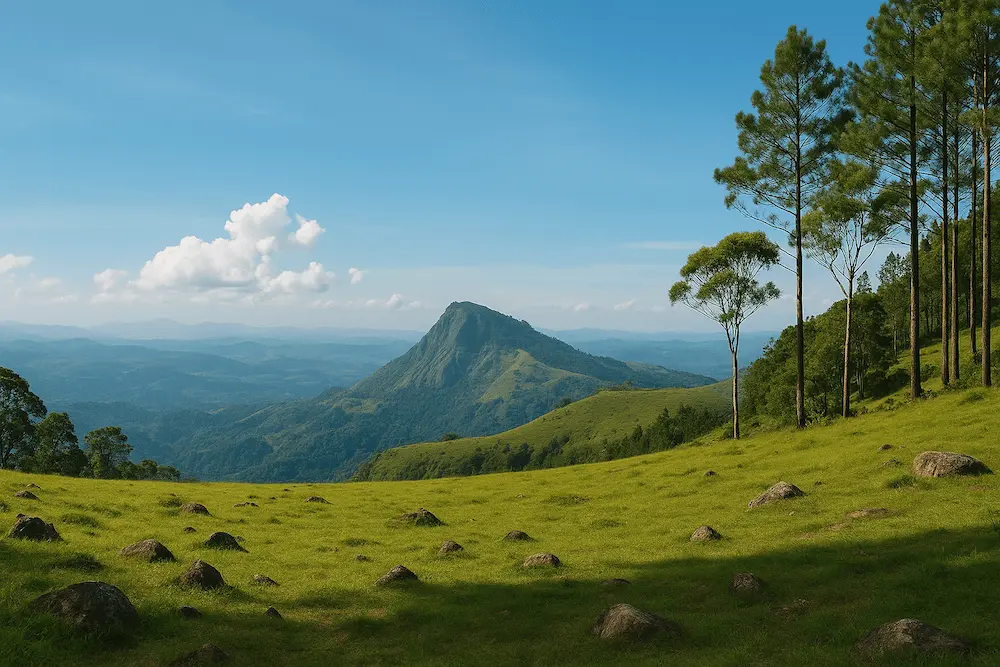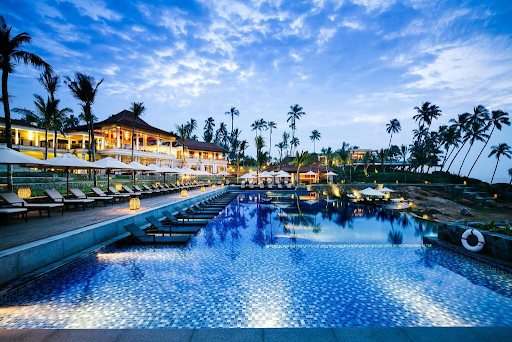TL;DR
Generally Safe – Sri Lanka has improved political stability, low violent crime, and reduced terrorism risks since 2019.
Stay Cautious – Petty theft, occasional protests, and minor economic disruptions (like fuel/medicine shortages) can still occur.
Safety Tips:
- Avoid large crowds & protests
- Use trusted transport (Uber/PickMe)
- Carry essentials & travel insurance
- Stay vigilant in tourist areas
Yes, Sri Lanka is safe for travelers who stay informed and take basic precautions. Go explore! 🇱🇰✈️
Sri Lanka, known for its stunning beaches, lush tea plantations, ancient temples, and rich cultural heritage, continues to captivate travelers from around the world. However, many potential visitors still wonder “is Sri Lanka safe to travel” following the country’s past political instability and economic challenges. If you’re among those asking this crucial question or pondering “is it safe to travel to Sri Lanka in 2025?”, this comprehensive guide will address all your concerns with the latest updates, expert advice, and practical safety recommendations.
The island nation has undergone significant transformation in recent years, working diligently to restore stability and rebuild its tourism infrastructure. From improved security measures to enhanced emergency services, Sri Lanka has made considerable progress in ensuring visitor safety while maintaining its reputation as one of Asia’s most welcoming destinations.
Sri Lanka Travel Safety Update: 2025 Outlook
Sri Lanka has made remarkable strides in recovering from past crises, including economic instability, political unrest, and the lingering effects of the 2019 Easter bombings. According to recent reports and international travel advisories, the country has demonstrated significant improvement across multiple safety indicators. The 2024 presidential election was noted as one of the most peaceful in the country’s history, signaling growing stability under new leadership and renewed confidence in democratic processes.
The tourism industry has rebounded strongly, with international visitor numbers steadily increasing and major hotel chains resuming full operations. Infrastructure improvements, including better road conditions, enhanced communication networks, and upgraded medical facilities, have contributed to a safer travel environment for international visitors.
Key Safety Considerations:
| Safety Aspect | Current Status | Traveler Advice |
|---|---|---|
| Political Stability | Protests are rare; the government has strengthened security measures nationwide | Avoid large gatherings if they occur; monitor local news |
| Crime Rates | Petty theft (pickpocketing, bag snatching) occurs in tourist areas. Violent crime against tourists is rare | Stay alert in crowded places, secure valuables, use hotel safes |
| Terrorism Threat | Low risk since 2019, but security remains heightened at key locations | Stay vigilant in public spaces, follow local news and embassy updates |
| Economic Recovery | Medicine & fuel shortages have significantly eased, but minor disruptions may still occur | Carry essential medications, maintain travel insurance coverage |
Is Sri Lanka Safe for Solo and Female Travelers?
When considering “is Sri Lanka safe to travel” for solo adventurers and female travelers, the answer remains largely positive with appropriate precautions. The country has a strong tradition of hospitality, and locals are generally helpful and welcoming to foreign visitors. However, solo travelers, particularly women, should observe certain safety protocols to ensure a comfortable and secure experience.
Essential Safety Guidelines for Solo Travelers:
- Dress modestly, particularly when visiting religious sites and rural areas
- Avoid walking alone at night, especially in secluded areas or poorly lit streets
- Use registered taxis or ride-hailing apps like Uber and PickMe instead of unmarked tuk-tuks
- Inform your accommodation about your daily plans and expected return times
- Keep copies of important documents in separate locations
- Trust your instincts if a situation feels uncomfortable
Female travelers should be particularly aware of cultural sensitivities and dress codes. While Sri Lanka is generally progressive, conservative dress is appreciated, especially in religious and rural settings. Many female solo travelers report positive experiences, citing the kindness of local families and the safety of well-established tourist routes.
Transportation Safety in Sri Lanka
Getting around safely is a crucial aspect when evaluating “is it safe to travel to Sri Lanka.” The country offers various transportation options, each with different safety considerations.
Road Safety: Sri Lankan roads can be challenging due to varying conditions, heavy traffic in urban areas, and different driving standards. If renting a vehicle, ensure you have adequate insurance and familiarize yourself with local traffic rules. Many travelers prefer hiring drivers familiar with local conditions.
Public Transportation: Buses and trains are generally safe but can be crowded. Express trains between major cities are comfortable and scenic, while local buses offer an authentic cultural experience. Keep valuables secure and be aware of your surroundings during peak travel times.
Ride-hailing Services: Apps like Uber and PickMe operate in major cities and offer reliable, trackable transportation with upfront pricing. These services are particularly recommended for airport transfers and evening travel.
Health and Natural Disaster Safety
Understanding health risks and natural phenomena is essential when asking “is Sri Lanka safe to travel” from a wellness perspective.
Health Risks and Precautions:
Tropical Diseases: Dengue fever remains prevalent, especially during monsoon seasons. Use high-quality mosquito repellent, wear long sleeves during dawn and dusk hours, and choose accommodations with proper screening and air conditioning when possible.
Water Safety: Avoid drinking tap water throughout your stay. Opt for sealed bottled water or use reliable water purification methods. Be cautious with ice in drinks and raw foods that may have been washed with tap water.
Recommended Vaccinations: Consult a travel medicine specialist about vaccinations for Hepatitis A, Typhoid, and Japanese Encephalitis (particularly important for rural travel and extended stays).
Medical Facilities: Major cities have good private hospitals with English-speaking staff. However, medical facilities in remote areas may be limited, making comprehensive travel insurance essential.
Monsoon and Natural Disaster Preparedness:
Sri Lanka experiences two monsoon seasons: the southwest monsoon (May–October) affecting the western and southern coasts, and the northeast monsoon (December–March) impacting the northern and eastern regions. These weather patterns can cause flooding, landslides, and transportation disruptions.
Weather Safety Tips:
- Check weather forecasts and monsoon predictions before traveling
- Avoid high-risk areas during heavy rainfall periods
- Keep emergency supplies including water, snacks, and flashlights
- Stay informed about local evacuation procedures
- Consider flexible travel insurance that covers weather-related disruptions
Top Safety Tips for Traveling in Sri Lanka
Based on current conditions and expert recommendations, here are essential safety guidelines for anyone wondering “is it safe to travel to Sri Lanka”:
Political Awareness: While political demonstrations are infrequent, avoid any public gatherings or protests that may occur. Even peaceful demonstrations can escalate unexpectedly, and foreign visitors should maintain distance from political activities.
Transportation Security: Use reputable transport providers and pre-book transfers when possible. Companies like Rofi Car Rentals and established tour operators maintain higher safety standards and provide reliable service.
Financial Safety: Credit card fraud and overcharging can occur, particularly in tourist areas. Use cash for small purchases, verify prices beforehand, and keep receipts. Use ATMs at banks or established hotels rather than standalone machines.
Cultural Respect: Sri Lanka is predominantly Buddhist, and religious sites require appropriate behavior. Cover shoulders and knees when visiting temples, remove shoes when required, and never pose disrespectfully with Buddha statues or religious artifacts.
Emergency Preparedness: Save important contact numbers in your phone:
- Police: 119
- Tourist Police: +94 11 242 1052
- Ambulance: 1990
- Fire Service: 110
Conclusion: Is Sri Lanka Safe in 2025?
The definitive answer to “is Sri Lanka safe to travel” is yes, with appropriate precautions and awareness. The country has demonstrated remarkable resilience and recovery, with improved political stability, enhanced security measures, and a genuinely warm welcome for international visitors. While challenges remain, as they do in any travel destination, Sri Lanka’s commitment to tourism safety and its natural beauty make it an excellent choice for travelers seeking adventure, culture, and relaxation.
With proper planning, realistic expectations, and adherence to basic safety guidelines, Sri Lanka offers an incredibly rewarding travel experience. The island’s diverse landscapes, rich history, delicious cuisine, and hospitable people create memories that last a lifetime.
Plan Your Safe Sri Lanka Trip Today!
For a worry-free experience, book reliable transport, stay updated on travel advisories through official sources, maintain comprehensive travel insurance, and embrace the island’s extraordinary beauty with confidence. Sri Lanka awaits your discovery – safely and spectacularly!
Explore Sri Lanka with confidence, knowing that with proper preparation and awareness, your journey will be both safe and unforgettable.




